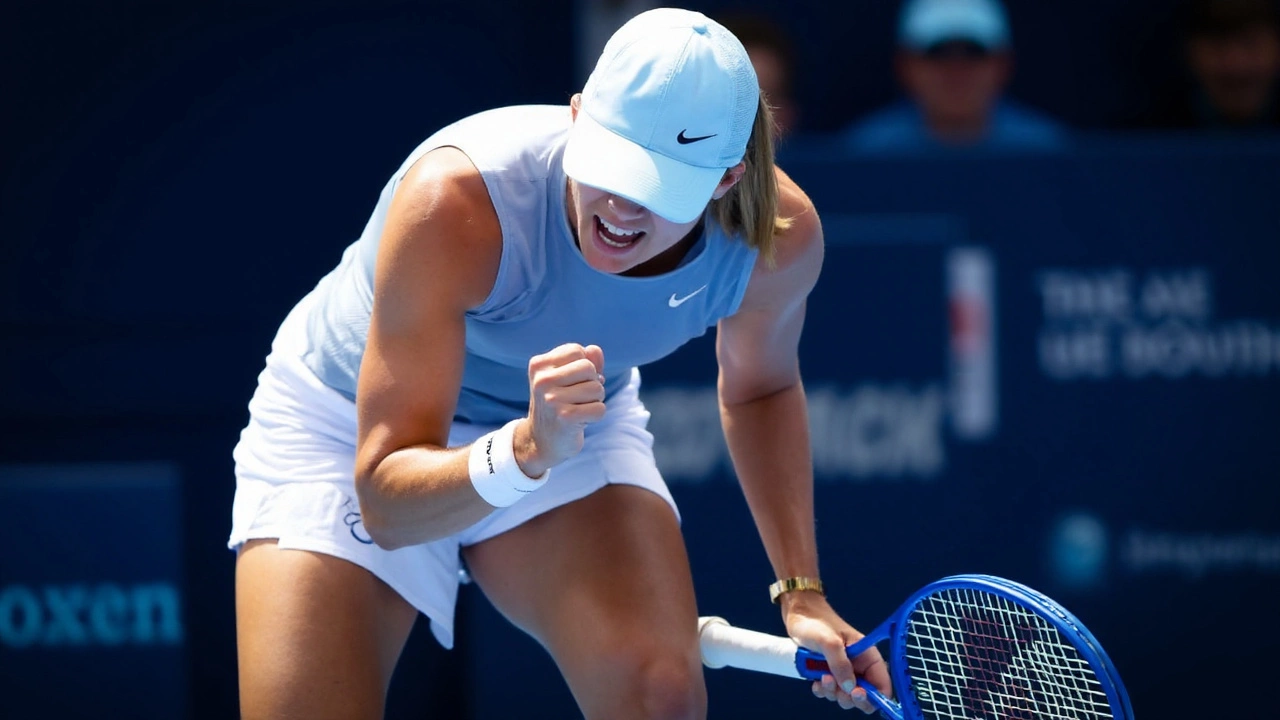Scheduling Drama at the Cincinnati Open
The Cincinnati Open isn't just remembered for impressive rallies or clutch performances. This year, it exploded with a conversation about fairness—specifically, the timing of Iga Swiatek’s matches. Swiatek, ranked number three in the world, never dropped a set as she cruised through early rounds, but it wasn’t her dominance that got folks talking. It was the fact that she always played early—sometimes at 11 AM, other times at 1 PM.
Critics, including fellow competitor Anna Kalinskaya and tennis heavyweights like Lindsay Davenport, were quick to call out what they saw as preferential treatment. Kalinskaya was particularly vocal after a grueling night: she finished against Ekaterina Alexandrova at 2:40 AM, barely got to bed by 4 AM, and then was scheduled to face Swiatek at 11 AM the same day. She vented online, questioning how the WTA expects athletes to perform at their best without proper rest, calling the situation far from fair.
The feeling wasn’t isolated. During a broadcast, Davenport pointed out that Swiatek always went on first, while her rival Elena Rybakina typically played after 5 PM. Even Brad Gilbert jumped into the mix on social media, openly wondering if Swiatek’s team had asked for those early starts, or if the organizers just had a habit of scheduling her then. The implication? Swiatek might have had a smoother path through the blazing Cincinnati heat—conditions hit 90°F (32°C)—by consistently playing earlier in the day.
Rick Macci and the Bigger Picture
Into the fray stepped Rick Macci, the coach who once helped mold Serena Williams into a superstar. Macci dismissed the fuss as ‘a different petty level of complaining.’ To him, the outrage didn’t reflect any real unfairness—just sour grapes from those who didn’t come out on top. He pointed to the realities of tennis: scheduling gets sorted by factors like TV slots, court space, big-name players, and sometimes playoff rankings. It’s messy, but not usually a sinister plot.
Swiatek didn’t hide that the schedule grind is tough. Last year, she said herself that bouncing from city to city at the highest level wears players out and everyone deserves more rest. Still, she pushed through in Cincinnati, dispatching opponents including Anastasia Potapova, Sorana Cirstea, Anna Kalinskaya (yes, after that tough night), and Elena Rybakina to reach her 13th career WTA 1000 final. She didn’t do it by luck alone; a second-round walkover against Marta Kostyuk helped, but most of her wins were just straight up overpowering good tennis.
For Swiatek, the complaints rolled off her back. For Macci, the uproar was more about frustration from others than any real scheduling scandal. But it does revive the classic tennis debate: does the current way of setting match times stack the deck in anyone’s favor, or do all pros just have to deal with the hand they’re dealt? Whatever side you take, the Cincinnati Open showed the issue is far from settled—and it’s definitely not just about what happens on the court.
